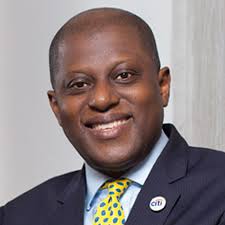Minister for Budget and National Planning, Sen. Udoma Udo Udoma says Federal Government will fund the 2018 budget using key reform initiatives contained in the Economic Recovery and Growth Plan (ERGP).
He said this on Tuesday in Abuja while presenting an overview of the 2018 budget proposal.
The budget, tagged “Budget of Consolidation’’, which was presented to the joint session of the National Assembly by President Muhammadu Buhari on Nov. 7 is expected to reinforce and build on recent accomplishments of the government.
Its key parameters include a crude oil benchmark price of 45 dollar per barrel, oil production estimate of 2.3 million barrels per day and exchange rate of N305 per dollar.
The budget also has projected oil revenue of N2.442 trillion and non-oil projection of N4.165 trillion.
It has a capital expenditure projection of N2.428 trillion, recurrent expenditure of N3.494 trillion, N2.014 trillion for debt servicing and fiscal deficit of N2.005 trillion.
Udoma said Federal Government would deploy new technology to improve revenue collection, enhance tighter performance management framework for State Owned Enterprises (SOEs) and stronger enforcement action against tax defaulters.
He added that the 2018 revenue projections reflects new funding mechanism for Joint Venture (JV) operations, allowing for cost recovery in lieu of previous cash call arrangements.
He noted that “there will be restructuring of government’s equity in JV oil assets, reduction in equity holding with proceeds to be reinvested in other assets.
“This will improve efficiencies in the operations of the JVs and position them for better revenue performance in future, increase in excise duty rates on alcohol and tobacco.
“Tax administration improvement initiatives to positively affect collection efficiencies across various tax categories such as tax amnesty programme.’’
Udoma said additional oil-related revenue including: royalty recovery, new/marginal field licences, early licencing renewals and review of the fiscal regime for oil Production Sharing Contracts (PSCs), would also be employed.
He explained that oil revenue would account for 37 per cent of the estimated revenue, while independent revenue was put at 12.8 per cent, JV equity restricting, 10.7 per cent, Company Income Tax (CIT), 12 per cent and Value Added Tax (VAT), 3.1 per cent.
“Customs is expected to account for 4.9 per cent, recoveries, 7.8 per cent, tax amnesty 1.3 per cent, signature bonus 1.7 per cent, grants and donor funding 3 per cent and other unnamed sources to account for 5.5 per cent of the revenue.
He said just like earlier budgets by the administration, it would ensure that funds were geared toward financing various capital projects
He cited some projects the Federal Government would embark on across several sectors of transport, power, health, education, works, housing, water resources agriculture and rural development, mines and steel development and special intervention programmes among others.
The minister said though the Federal Government had earmarked N2.42 trillion for capital projects, it would attract private sector involvement in the implementation of the projects, especially roads.
“What we need to construct roads is in trillions and we do not have that money now that is why we are involving Public Private Partnerships (PPP).
“Let us say what we have in the budget to use for roads, though would not be enough, would be Federal Government’s contribution towards construction of roads, while other support would come from the private sector.’’ (NAN)



